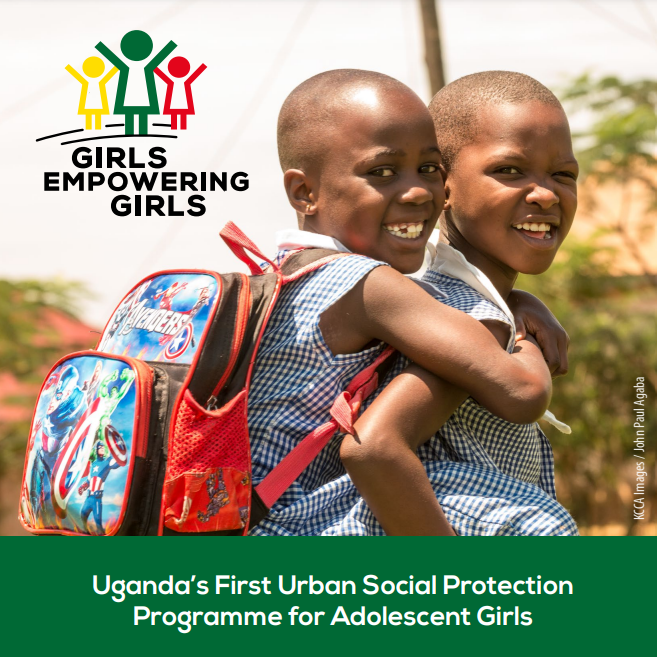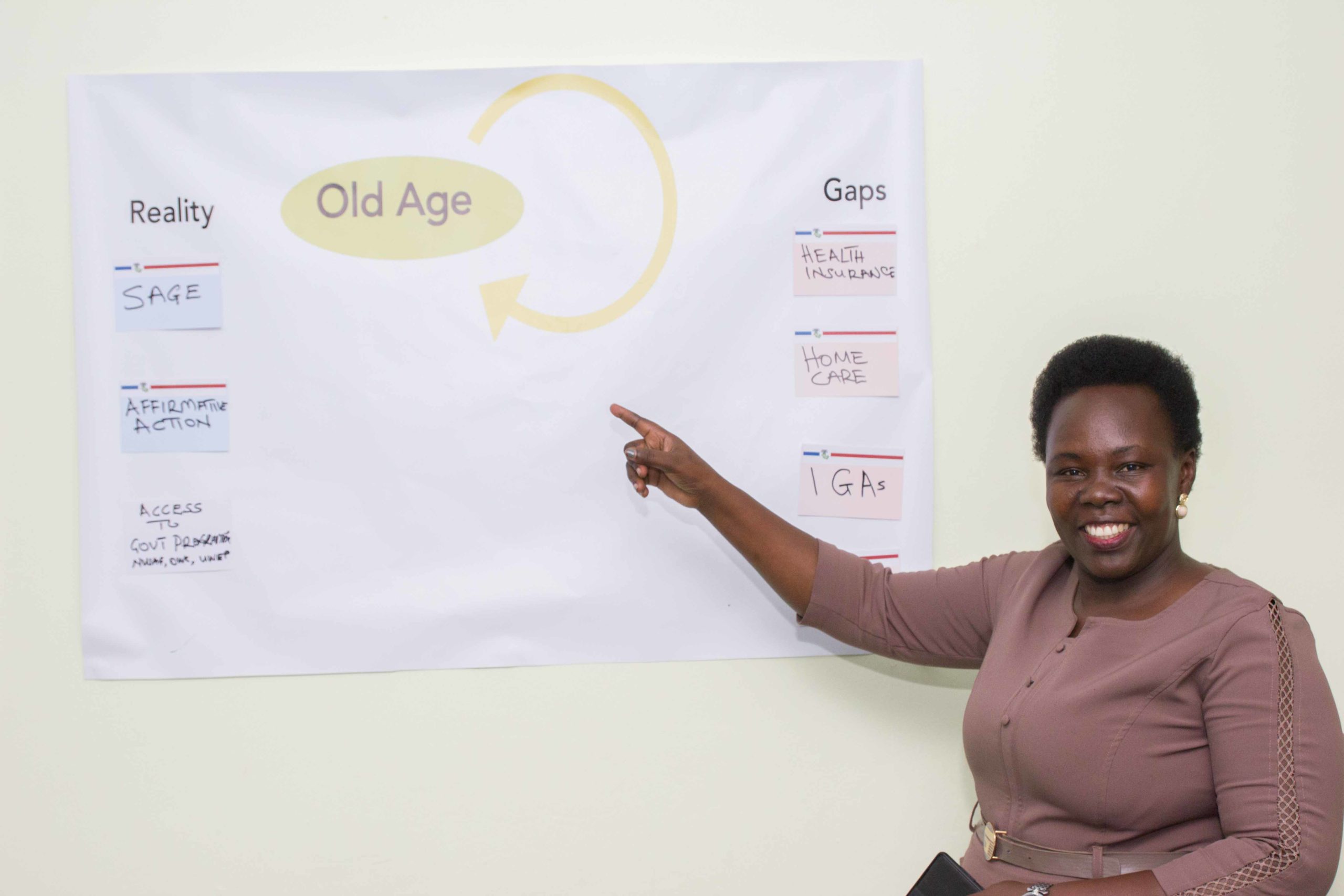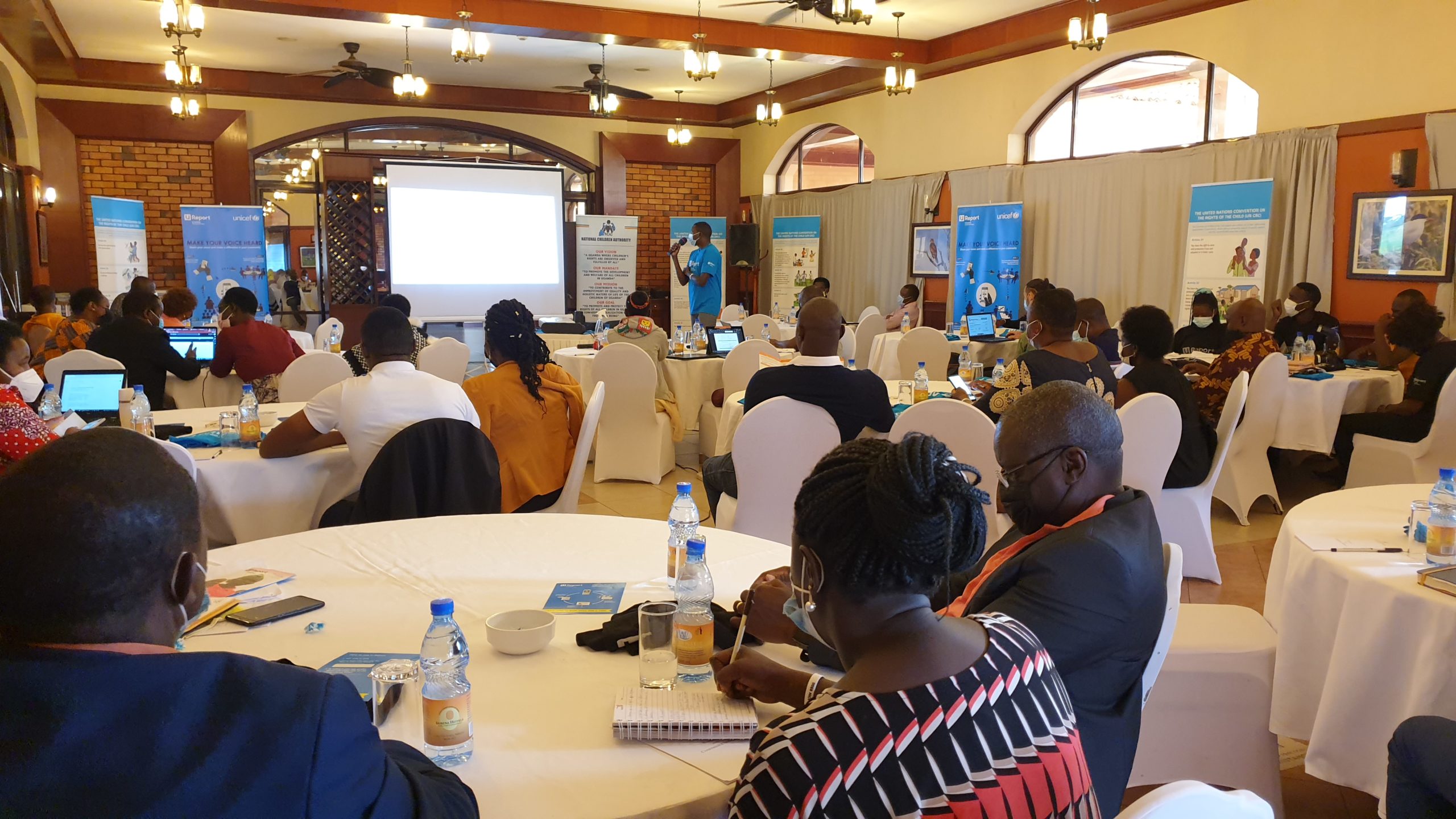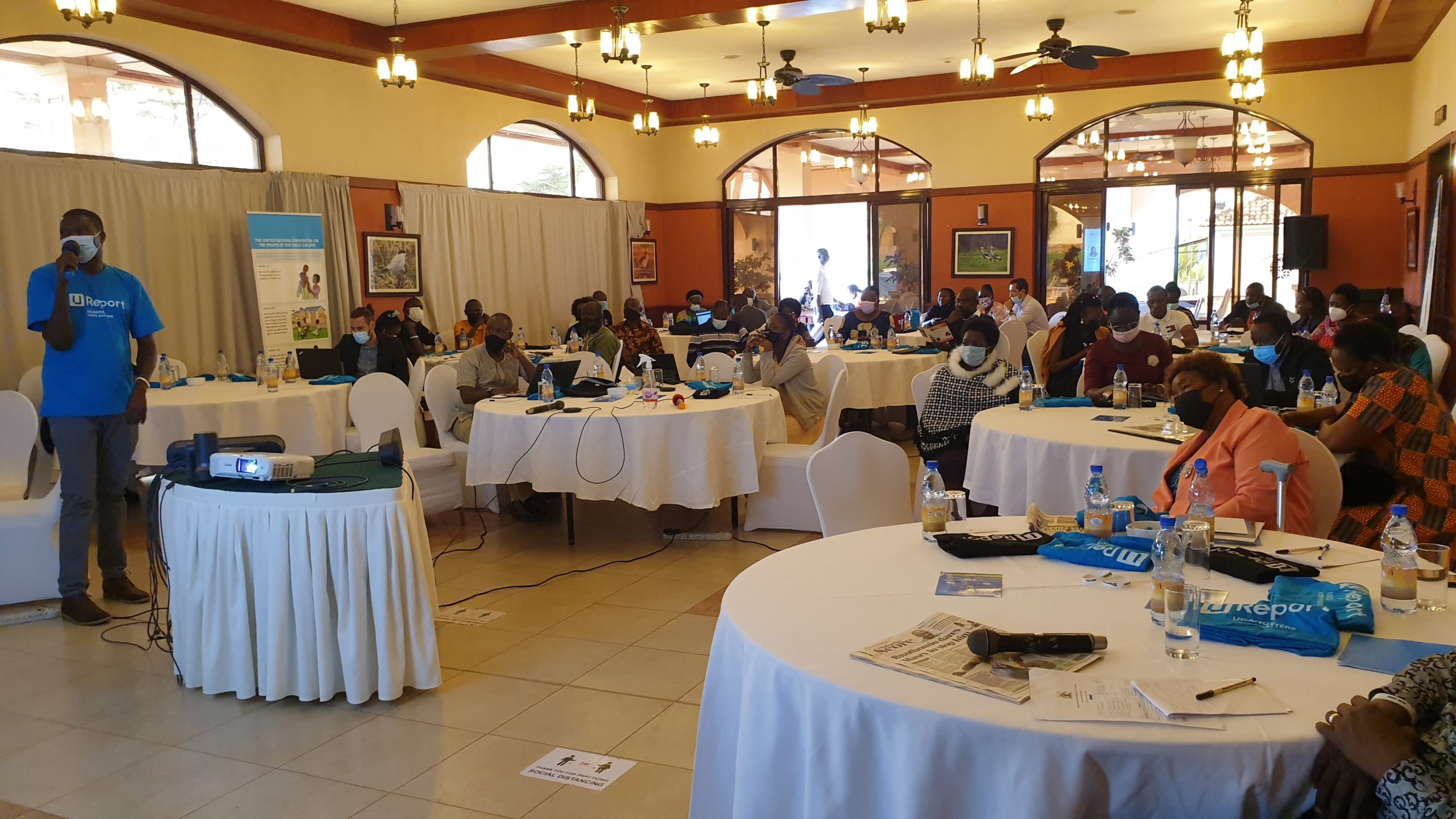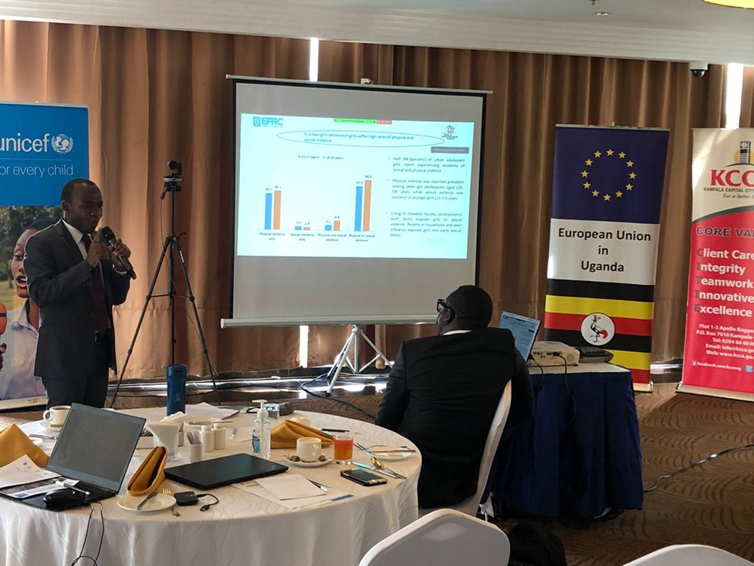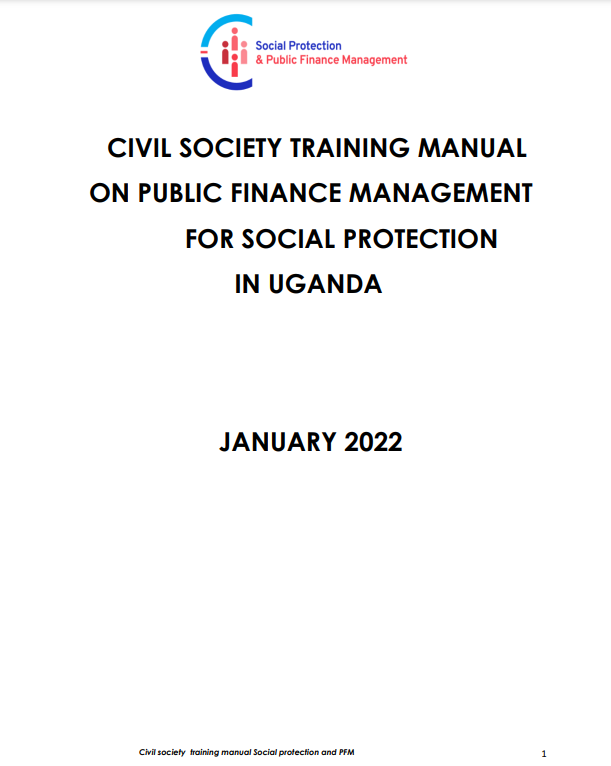Uganda

189 national stakeholders trained for effective and sustainable social protection
Capacity building trainings were delivered to policy makers and legislators, government officials and trade union representatives for the implementation and monitoring of effective gender-sensitive and disability inclusive social protection systems and programmes.

1500 girls supported to return to school or to attend vocational training
SP&PFM supported the Girls Empowering Girls initiative (Uganda’s Urban Social Protection Programme for Adolescent Girls) to ensure cash transfers, mentorship and referral to services for adolescent girls in urban areas. 75 girls with disabilities were also supported.

4,000 older persons mobilized and registered for accessing the Senior Citizens Grant
Elderly citizens of 80 years of age and above eligible for the grant were not receiving it due to lack of national identity cards or to identity cards with wrong data. Receiving the new ID cards allowed them access to the grant.
The joint action ‘Improving Synergies Between Social Protection and Public Finance Management’ in Uganda sought to increase the population’s social protection coverage with a particular focus on the poor and vulnerable, to ensure that Uganda progressively moves to more comprehensive and even universal social protection.
The project worked with the government and other key stakeholders to improve the design and financing of Uganda’s social protection system towards the achievement of the UN Sustainable Development Goals 1 and 10, including by providing technical assistance to the government for the implementation of the National Social Protection Policy.
The project also contributed towards facilitating stakeholders dialogue to address some of the challenges related to public finance management towards progressively attaining more predictable budget allocations, a reduction in the fragmentation of revenue streams and funding flows and ensuring better financial accountability and transparency.
Key results achieved
The project made important progress in supporting and strengthening existing social protection system, expanding the knowledge base through evidence generation, and supporting decision-making processes. Key activities included the following:
a) Increasing dialogue and coherence amongst national stakeholders:
- Through the collaboration with the Uganda Parliamentary Forum on Social Protection (UPFSP), the project supported the drafting of the Social Protection Advocacy plan for 2021 and 2022, which is expected to be a guiding framework for social protection advocacy. Key advocacy issues included increased financing and coverage of social protection. The advocacy agenda supported the harmonisation of engagements by different stakeholders in influencing financing for social protection.
- Through collaboration with the UPFSP, the project supported the introduction of social protection matters to the leadership of the Parliament of Uganda, including the Executive. This was followed by an orientation session with the Parliamentary Committee on Gender, Labour and Social Development and Parliamentary Committee on Budget.
- Capacity was built on social protection and public finance management through orientation sessions with the new Parliament members, focusing on four advocacy priorities, including social protection and public finance management. Among the forums and committees, the project engaged with: Uganda Parliamentary Forum for Social Protection (UPFSP), Uganda Parliamentary Forum for Children (UPFC), Uganda Parliamentary Forum for SDGs, Budget Committee and the Finance Committee.
- The Project enabled capacity building on social protection and public finance management to the 50 social protection champions identified amongst the 11th Parliament members.
- Through the Social Protection Development Partners Group (SPDG), the project supported the implementation of the first-ever emergency cash transfer for individuals whose livelihoods were affected by the COVID-19 pandemic.
- A National Budget Dialogue was also organized in March 2021 under the theme “Social Protection in the Third National Development Plan (NDP III)”, within the framework of its efforts to improve synergies between social protection and public finance management.
- The Project, through the civil society organizations, supported engagements between the National Identification Regulatory Authority (NIRA), Expanding Social Protection Programme (ESPP) and Social Protection Platform Uganda (SPPU) to inform the development of strategies to register all older persons without national identity documents, enabling them to access the cash benefits under the Senior Citizens Grant (SCG).
- The Project actively participated in the Public Finance Management and Accountability Working Group, Uganda Social Protection Platform (USPP) and the Ministry of Gender, Labour and Social Development (MGLSD) Expanding Social Protection Steering Committee, advocating for expanded fiscal space and coordinating with key stakeholders.
b) Supporting national evidence-based decision-making:
- The project positioned itself as a key partner in the development of the National Strategy for Extension of Social Security Coverage to the Informal Sector by the Ministry of Gender, Labour and Social Development (MoGLSD).
- The project launched a feasibility study in collaboration with the National Social Security Fund (NSSF) towards evidence generation and informing NSSF’s objective on the extension of coverage to informal workers. The report provides solutions on how NSSF can extend its services to informal economy workers and self-employed workers through the design of benefits aligned to their short and long-term needs. The report also articulates NSSF’s institutional preparedness in extending coverage.
- The project conducted a case study of Uganda’s urban social protection programme for adolescent girls (GEG) on the importance of a system strengthening approach to social protection. The GEG programme illustrates how social protection programming design choices and implementation can contribute to long-term investments in systems strengthening.
- Through the support of the project, the urban social protection programme for adolescent girls in Kampala provided space for Government and CSO implementing partners to build knowledge on implementing gender-sensitive and disability-inclusive social protection programmes. For instance, Kampala Capital City Authority (KCCA) took on the management of cash transfers to beneficiaries in 2021 and led the development of key programme design and operation manuals and tools.
- The Project conducted a study on compliance to social security obligations amongst members of the Federation of Uganda Employers and assessment of awareness of social security among workers.
- Development of COVID-19 microsimulations for one-off cash transfers to facilitate government and development partner decision-making on social protection responses to the pandemic and mitigation effects.
- Production of three policy briefs and six budget briefs to drive decision-making and support government advocacy. These included briefs on (1) the unique challenges faced by adolescent girls in urban areas and the opportunities provided by social protection; (2) a fiscal space analysis for adolescent social protection; and (3) a case study of systems strengthening.
c) Supporting diversified sources of funding for social protection, prioritizing children, workers in the informal economy and older persons by
- Undertaking a thorough assessment of civil society organizations and trade union capacities; and learning demands, challenges and good practices on the effective engagement with social protection and public finance management processes. This formed the foundation for a capacity development agenda in 2022 and beyond.
d) Strengthening knowledge and technical capacities of partners at national and sub-national levels by
- Providing training sessions to officials from the Ministry of Gender Labour and Social Development on social protection programme monitoring and implementation.
- Supporting initiatives towards social protection systems strengthening for improved coordination in implementation of the Parish Development for enhanced social protection service delivery in Kaabong district, in collaboration with the World Food Programme (WFP).
- Supporting the government in implementing and monitoring effective social protection systems and programmes, with progress in developing and improving monitoring and evaluation frameworks with Kampala Capital City Authority (KCCA).
- Supporting the organisation of three multi-stakeholder public events.
- The Project conducted a study tour in Senegal between GCSPF teams of Uganda and Senegal that facilitated peer learning about SPPFM.
Resources
- Capacity assessment: Good practices, learning demands and challenges for civil society organisations and trade unions participation in Social Protection and Public Finance Management processes in Uganda, December 2020.
- UPFSP Newsletter – “Social protection re-introduced to leadership of Parliament”, October 2021.
- UPFSP Website – “Broaden Social Protection Advocacy Beyond SAGE- Speaker”, September 2021.
- UPFSP Website – “Gender Committee Pledges to work with the Forum on Push for Social Protection System”.
- Budget briefs on the National Budget Framework Fiscal Year 2021/22
- KCCA’s GirlsEmpoweringGirls Programme Brochure
- Case study: “The importance of a system strengthening approach to social protection: A case study of Uganda’s urban social protection programme for adolescent girls”, July 2021.
- Policy brief: “Challenges Faced by Adolescent Girls in Urban Areas of Uganda and the Case for Targeted Social Protection Programmes”, May 2021.
- Policy brief: “Expanding fiscal space for social protection: The case for adolescent-oriented services”, May 2021.
News and Events
- Peer to Peer Country exchange visit on promotion of universal social protection systems based on sustainable financing. 8th -12th May 2023 Lusaka Zambia.
- Uganda organises Open Budget Survey Reform retreat, 26-27 October 2022
- Study tour between GCSPF countries -Senegal 18th-22nd 2022
- SP&PFM capacity-building on social protection leads to a digital village directory in Uganda, 2022
- Consultative and Validation workshop on feasibility study for the extension of social security to informal workers, July 2022.
- Training for Parliamentarians on Social Protection and Public Finance Management 23rd-25th June 2022: invitation; article published on the UPFSP website.
- Training activity on Social Protection Financing and Financial Management, 22nd to 24th June 2022, under the TRANSFORM approach.
- Webinar on Social Protection Financing for Sustainable Development. January 25, 2022 Video | Webinar agenda
- Five-day training of government officials from the Kaabong and Moroto districts in 2022
- 2021 Public Budget Dialogue: Social Protection Under the Third National Development Plan on March 4, 2021
- Public Budget Dialogue on Programme-Based Budgeting on December 15, 2020
- Research Symposium with Kampala Capital City Authority on December 10, 2020
Partners
The project is implemented jointly by the ILO; UNICEF; the Delegation of the European Union office in Kampala; and the Global Coalition of Social Protection Floors (GCSPF), represented by HelpAge International in Uganda. These partners support the government in improving the design and financing of inclusive social protection systems, through collaboration with the Ministry of Gender, Labour and Social Development, the Ministry of Finance, Planning and Economic Development, Uganda Social Protection Platform (USPP), Kampala Capital City Authority and the National Social Security Fund. Together with workers’ and employers’ organizations, civil society organizations, parliamentarians and local governments, the participation of the partners in extending social protection coverage underpinned by sustainable financing will help position the Government to recognize the need and move towards progressive expansion of social protection.
Contacts
Ms Mwenya Kapasa, ILO Technical Officer, kapasa@ilo.org
Ms Sarah Anyokorit , ILO National Programme Coordinator; anyokorit@ilo.org
Mr Musoke Robert, UNICEF, Social Policy Specialist; rmusoke@unicef.org
Ms Emily Kemigisha, HelpAge International, Country Representative emily.kemigisha@helpage.org
Brochure promoting the GirlsEmpoweringGirls programme of Kampala Capital City Authority, supported by the project.
Group photo of training activity on Social Protection Financing and Financial Management, June 2022.
A legislator explaining Uganda’s social protection programmes across the lifecycle – training on Social Protection Financing and Financial Management, June 2022.
Training activity on Social Protection Financing and Financial Management, June 2022.
Orientation of Members of Parliament on social protection, 2021.
Orientation of Members of Parliament on social protection, 2021.
Research Symposium organized by KCCA in partnership with the project. Kampala, 10 December 2020.
Dialogue on Programme-Based Budgeting in Kampala, 15 December 2020.


